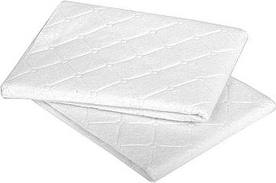How can you cope with the unmentionable after traumatic brain injury? It’s blood, sweat and tears with urine, sweat and feces. Oh Crap, or Piss-on-it, or just too much Sweat! Any way you look at it I stink!  The injury is healed, but now you have so many symptoms to live and cope with. Now, who is there to help you anyway? You are at home…big deal! It is a big deal to be at home, but now you have to figure out your surroundings, your role in life, but most importantly how your body now functions or for that matter does not function.
The injury is healed, but now you have so many symptoms to live and cope with. Now, who is there to help you anyway? You are at home…big deal! It is a big deal to be at home, but now you have to figure out your surroundings, your role in life, but most importantly how your body now functions or for that matter does not function.
Now you are out in cruel society where everyone does not realize 1.7 million people suffer the invisible traumatic brain injuries every year. Very few receive rehabilitation for any length of time. The majority never receive rehabilitation. I once thought that if you had the obvious wounds of bullets or shrapnel one would get rehabilitation. But again it is costly. It is either costly by the dollar amount, or you may just die. Thinking of this it reminded me of my brother (18 months younger than I) at age 24 who didn’t survive his bullet wounds while picking up a 16 year old who supposedly needed help. A personal reminder that obvious or invisible wounds are not always survivable either.
 All the CAT Scans, MRIs, and medical testing may look normal, but it does not mean your brain functioning is normal. So you have a good looking brain, but a poor functioning brain! And what difference does it make if you have a horrific looking brain, you still are expected to function “as normal”. We’d all rather have a good functioning brain, but it’s not your choice that matters. It’s what you now need to deal with.
All the CAT Scans, MRIs, and medical testing may look normal, but it does not mean your brain functioning is normal. So you have a good looking brain, but a poor functioning brain! And what difference does it make if you have a horrific looking brain, you still are expected to function “as normal”. We’d all rather have a good functioning brain, but it’s not your choice that matters. It’s what you now need to deal with.
Remember, just because the injury is healed does not necessarily mean your body will function like it use to. I’m happy to say, some people do…but then many don’t. It does not take a rocket scientist to tell you that your body has changed. I think you’ve figured that out on your own. It might only be temporary or it might be permanent. Either, way be prepared for change and know you are not alone.
I had many injuries prior to the most devastating in October 1991, and none of them affected me with permanent or even partial difficulties. I guess in retrospect maybe just brief and temporary setbacks. These brief episodes lasted such a short time it’s hardly worth mentioning. But I choose to mention that here because others may be wondering why now after many injuries without difficulties…they are faced with numerous issues. It’s just your body and it recovered in the past. Now your body needs your help and your attention. Basic bodily functions may not work as they did in the past. So much rehabilitation is on cognitive, but when you are on your own the physical is not an appealing task to deal with. And who is there to help and explain this to you? It’s a very personal issue. I hope I can help those with these personal issues. I’ve been there and done that … both sides as a previous certified registered rehabilitation nurse and as someone with major life changes following a traumatic brain injury.
I had the benefit of knowing what others went through so I always knew I was not that bad and I felt blessed…but it was still difficult to understand “Why?” all these things were happening and what I could do to resolve the issues at hand. These issues where never addressed long-term. It was speculated that once they retrained the bladder and bowel that was the end of it. I had the knowledge of what is typically used in rehabilitation, but I did not know how to handle the situations on a personal level. No one told me what to do or how to deal with these issues at home.
Besides, these problems are unpredictable and change from day-to-day. It has nothing to do with your psychic. Do not put yourself down. This is a difficult injury to concur…and you will! Just because the healing has occurred to the visual medical testing, doesn’t mean you don’t have an abundance of issues to address.
You could write a list of all the adjustments and adaptations you need to make; and that list can change from day-to-day, week-to-week, month-to-month and year-to-year! It also changes depending on the chapter of life you are in. Life changes and so does your body and types of adjustments. What a complex injury, but then who is helping you with all these things? Even if you had formal rehabilitation for several months, what happens when your are on your own? You might have an appointment every few months, or once a year with a physician or nurse practitioner. During this routine appointment you might have 10 minutes to give them a list that it took you a year to compose. Now that makes a lot of sense! Put the priority questions at the top of the list because it’s doubtful you’ll get them all addressed. If you do please share those physicians and nurse practitioners and healthcare systems so we can also make appropriate referrals.
Here I will address just a couple of the most embarrassing symptoms you need to deal with. Just a couple of the many symptoms that so many do not even know you deal with every day. They don’t need to know, but you need different options.  Not pleasant, if you pee, crap your pants, or sweat profusely …. anyway you look at it IT STINKS! … Medically known as fecal and urinary incontinence after brain injury or chronic illness. Also a personal subject to talk about. This is something everyone does all the time, but frequently with and brain and spinal cord injury, chronic illness, other brain dysfunctions and diseases this normal bodily function becomes “abnormal” and unable to control.
Not pleasant, if you pee, crap your pants, or sweat profusely …. anyway you look at it IT STINKS! … Medically known as fecal and urinary incontinence after brain injury or chronic illness. Also a personal subject to talk about. This is something everyone does all the time, but frequently with and brain and spinal cord injury, chronic illness, other brain dysfunctions and diseases this normal bodily function becomes “abnormal” and unable to control.  This is something the average toddler knows how to do quite well between the age of 2 and 3 years old. So how humiliating does anyone think this is to the soul who has lost so many other things in less than a fraction of a second? Who teaches these people how to deal with this on a daily basis? It’s given to the patient as very factual. It’s like learning math as in 1 + 1 = 2. As quick as you learned that you must learn and know everything about the basic functioning of your body that you suddenly lost all control. If you were slower at learning your math facts or needed tutoring, you are simply out of luck. It’s all about time and money for healthcare. Very SAD!
This is something the average toddler knows how to do quite well between the age of 2 and 3 years old. So how humiliating does anyone think this is to the soul who has lost so many other things in less than a fraction of a second? Who teaches these people how to deal with this on a daily basis? It’s given to the patient as very factual. It’s like learning math as in 1 + 1 = 2. As quick as you learned that you must learn and know everything about the basic functioning of your body that you suddenly lost all control. If you were slower at learning your math facts or needed tutoring, you are simply out of luck. It’s all about time and money for healthcare. Very SAD!
You got your 30 seconds or less of teaching and you better have absorbed the information, even if you never took anatomy and physiology! Because it’s on to teach or at least tell the next patient with the life altering problems another simple trick. It will not be long before patients will leave the hospital directly from intensive care.
We should just have drive up healthcare for everything…pull up to a window, address your questions and get the answers at the next window. Or drive-thru surgery…get on the stretcher at the door and pushed out the back door into your vehicle and skip recovery room altogether. Save money, not lives!. I’m all about saving lives, not money…but that’s not what America’s healthcare is about.
The medical terms of fecal and urinary incontinence are not frequently talked about unless you are visiting the physician who deals with these issues on a regular basis. This nurse has dealt with these problems on a very different level…a personal level so you do not need all the answers. I’ve had to be very creative to make everything work in my life, albeit not active.  It’s not like I read anything or learned about these things. Here are a few new suggestions that worked well. These suggestions don’t always work for everyone, but it may lead you to using your imagination to figuring out how best to make the situation work better. Most people would just be flipping out if you ask them how their life would be if they lost control of their bowel and bladder functioning. But then there are those with brain injuries and chronic illnesses that deal with these problems everyday regardless of age. It was not their choice! Age is not a factor and these problems do not discriminate with sex, age, diagnosis. These problems may be associated with specific diagnosis, but they be part of a misdiagnosis as well. So don’t think you are nuts! You may not have the proper diagnosis.
It’s not like I read anything or learned about these things. Here are a few new suggestions that worked well. These suggestions don’t always work for everyone, but it may lead you to using your imagination to figuring out how best to make the situation work better. Most people would just be flipping out if you ask them how their life would be if they lost control of their bowel and bladder functioning. But then there are those with brain injuries and chronic illnesses that deal with these problems everyday regardless of age. It was not their choice! Age is not a factor and these problems do not discriminate with sex, age, diagnosis. These problems may be associated with specific diagnosis, but they be part of a misdiagnosis as well. So don’t think you are nuts! You may not have the proper diagnosis.
What is the best way to deal with these bodily functions that are uncontrollable? Swimwear.
Excessive sweating also is absorbed better with swimwear. I find rather than having my entire clothing soaking wet from just walking around the house, and since I need to remove my clothing quickly so I don’t pass out…wearing swimwear underneath is helpful. I was on the treadmill last week with the outdoor temp at 26 degrees and indoor at 66 degrees but had my trustworthy swimwear on daily. It’s not as unsightly as disrobing into underwear (especially at my age)! It keeps you feeling the best you can when dealing with this.
You will need the following:
- Depends/Disposable Underwear
- Baby wipes or Flushable Wipes
- Washcloths
- Bathing suits & swim trunks
- Waterproof pads for sitting on furniture, in the car, or in bed

- Disposable underwear, either cut a significant portion off the top and roll down a little …so they aren’t granny pants! Wear a pair of your underwear over them so you feel comfortable about your appearance. They should nearly cover the unsightly disposable underwear. Since the average age of traumatic brain injury is at 25, the females and males can still wear snug jeans and with a bathing suit or snug swim trunks it flattens the disposable undergarments and no one can tell you are wearing them! It’s a self-esteem issue…to feel self-reliable, self-confident, self-motivated, self-determined, and finally self-control!
Carry a backpack in your car. Keep it replenished with loose change, fresh and clean wipes, disposable underwear, regular underwear, a change of clothing, extra swimwear, deodorant, washcloth, a plastic bag, hand sanitizer, disposable pad, and a small can/bottle of air freshener. Keep a list of your medical conditions and all your current medications, physicians and emergency contacts in the backpack.
Backpack
- Fresh and Clean Wipes
- Disposable Underwear
- Regular Underwear
- Change of Clothing
- Extra Swimwear
- Deodorant
- Washcloth
- Plastic Bag
- Hand sanitizer and/or Hand soap
- Disposable padding
- Small can/bottle of Air Freshener

Doesn’t that stink? The advantage or disadvantage however one would look at it is this: When you don’t have a sense of smell it’s hard to know unless it’s running down your legs. On the other hand…as in my case I have NO sensation so I can’t feel anything in the buttocks area and NO sense of smell so it’s all about those who are around me! Now, doesn’t that stink?
Standing causes pain. So here’s something you might try and figure out. In my case if I get severe pain in my back, it’s almost always followed with fecal incontinence. Pay close attention to how your body works and what happens before and after incontinence. This will take time, but it’s worth the effort.
Diet Control May Minimize Fecal and Urinary Incontinence
- Limit amount of fiber in diet when leaving the house
- Before doing aquatic exercise I would have only protein (egg whites for breakfast) and eat high fiber after returning home. This prevented fecal incontinence for me.
- Increase amount of protein (takes longer to absorb)
- Add fiber to meals as soon as you return
- Massage your bladder before leaving the home
- Limit amount of fluids while away if at all possible (This was not an option since I had sensational thirst for water … but I do know it helps with urinary incontinence at night) I keep a thirst bottle beside my bed every night.
For whatever reason, I could never urinate/void until 4:00 pm regardless how much water I drank. It’s just how my body functioned for 18 1/2 years until getting the proper hormones. I guess that could be a good thing. I did swell up, but don’t have answer to this either. We don’t need answers, we just need to figure out what works and what doesn’t. This is one of the most demeaning of all issues following traumatic brain injury and chronic illness.
Related articles
- Brain injury: the hidden disability [David Crozier] (ecademy.com)
- 2012 Fund Raising Projects: March is Traumatic Brain Injury Awareness Month (ellisonbaypottery.wordpress.com)
- Parkinson’s Disease Drug May Help Brain Injuries, Report Says (nytimes.com)
- Amantadine Speeds Recovery From Severe Traumatic Brain Injury – ABC News (abcnews.go.com)
Maria Tatham
March 9, 2012 at 8:32 pm
Hi, just here to read and say how brave you are to share what you’ve learned. God bless you as you live this difficult life and help others to with grace and control and wisdom.
tickalongnice
March 10, 2012 at 10:00 am
This is a very touching post. It is true, when we are dealt a hand in life whether it be brain injury or chronic illness, there is no other choice than to deal with it best we can and get on with it. And yes, if in doubt get a second opinion.
brokenbrilliant
March 13, 2012 at 5:43 am
Thanks for sharing this. It is a difficult subject. Pelvic floor exercises are also helpful, for both women and men. http://www.oprah.com/health/Pelvic-Floor-Exercises-for-Women-Kegels-and-Pelvic-Clocks Strengthening the pelvic floor muscles helps a number of things — can’t hurt to keep our internal organs in place 😉 And it also helps with urinary and fecal incontinence. Best part of all is that you can do the exercises just about anytime — standing or sitting or driving.
brain injury self rehabilitation (BISR)
March 13, 2012 at 12:49 pm
Thank you for sharing this as I did fail to mention this in my article. Kegel exercises and every form of exercise is always preventative and should be first order of business. If the exercises doesn’t work…all the time, continue doing them. Always have the back-up safe plan. This is a common issue after brain and spine injuries. FYI: Those with critical brain injuries are actually retrained in every single bodily function and maybe this is the criteria for rehabilitation. It certainly is and needs to be in the acute rehabilitation phase. I wonder if these people even remember this phase of relearning. I’m mentioning this for awareness with brain and spine injuries. It’s not a subject discussed.